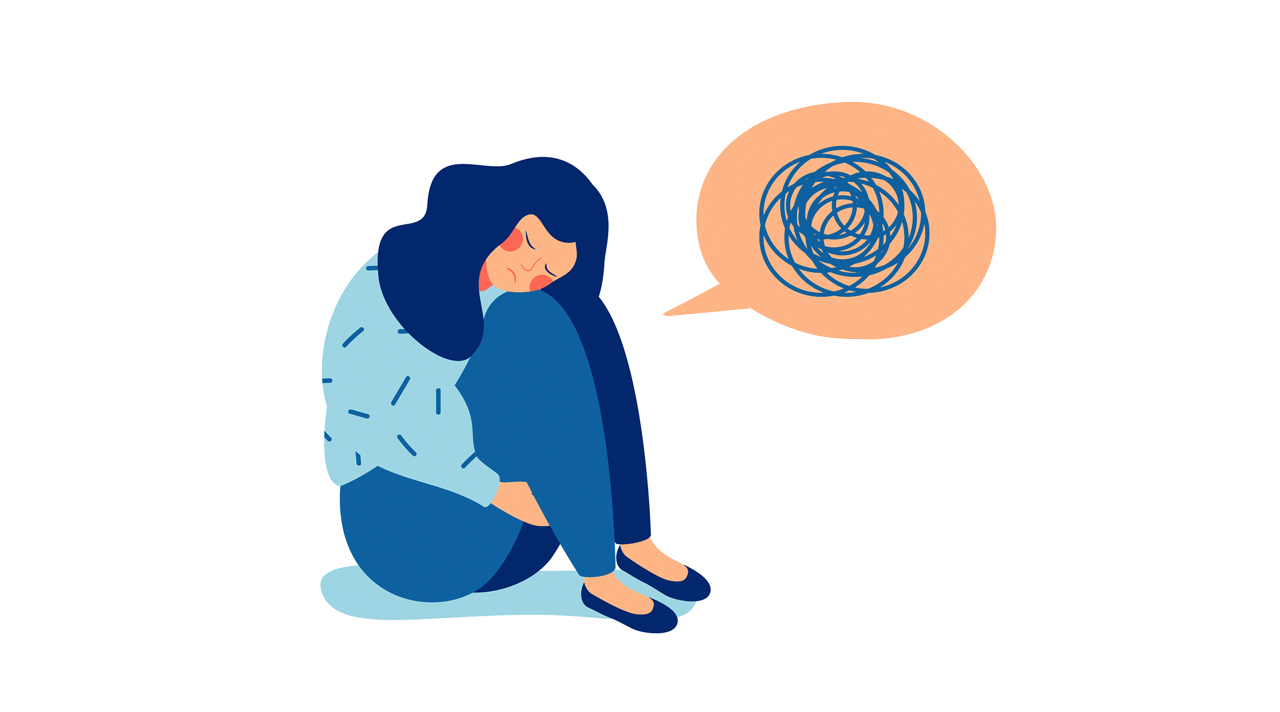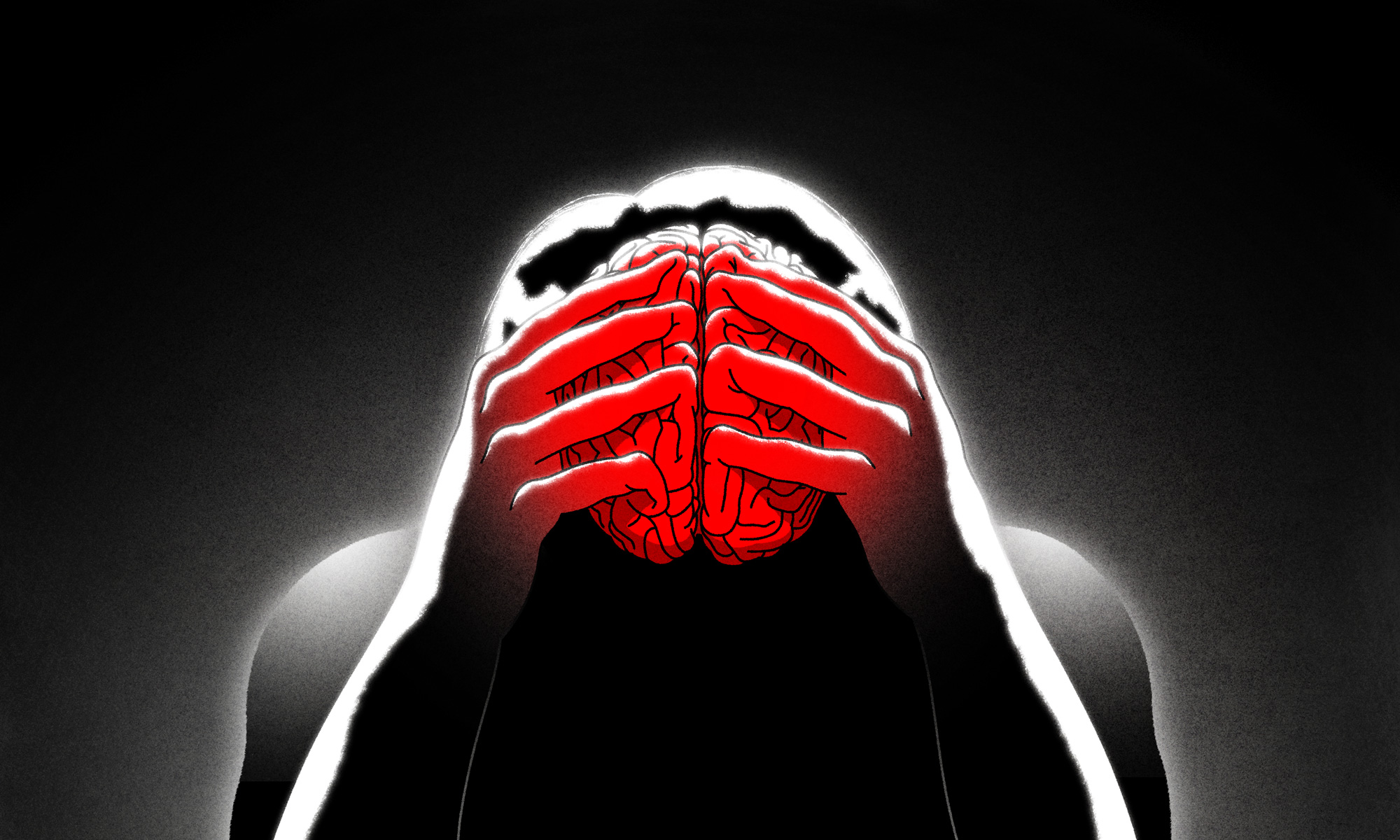Everyone is affected differently by anxiety. The feelings of fear and dread sometimes persist or worsen over time. You can find out about anxiety, who it affects, and how to deal with it here.
If you have anxiety because you cannot buy something you wish instant loans can help you afford it!
What is anxiety?
Your body’s natural response to stress is anxiety. It’s a sense of uncertainty or fears about the future. Going to a job interview or giving a speech on the first day of school, for instance, may make some people feel anxious and scared. Like a thought of having an Arkansas minimum wage.
However, you may have an anxiety disorder if your extreme anxiety lasts for at least six months and interferes with your life.
How are anxiety disorders defined?
It’s normal to be nervous about starting a new job, taking a test, or moving. Although it is unpleasant, this kind of anxiety may inspire you to work harder and do a better job. Anxiety that doesn’t affect your day-to-day life is known as “ordinary anxiety.”
If you suffer from an anxiety disorder, you may experience constant fear. It is intense and occasionally crippling. Like being unable to do dryer repair in Clermont FL.
You might stop doing things you enjoy because of this kind of anxiety. In extreme cases, it might make it impossible for you to enter an elevator, cross the street, or even leave your house. The anxiety will continue to worsen if it is not treated.
The most prevalent type of emotional disorder, an anxiety disorder can affect anyone. However, the American Psychiatric Association states that women are more likely than men to receive an anxiety disorder diagnosis. But also at the same time, women can get joint tubes and ride it out easily.
What kinds of anxiety disorders are there?
Anxiety is an essential component of numerous disorders. These are some:
Disordered panic. This indicates that you frequently experience sudden panic attacks.
Phobia. This is an excessive fear of a particular thing, circumstance, or activity.
Disorder of social anxiety. This is a severe apprehension of being criticized by others in social settings.
Disorder of obsessive compulsiveness. This indicates that you engage in particular, recurrent behaviors as a result of recurring irrational thoughts. You can contain your panic using access control installation in Philadelphia, to help you keep everyone safe and to keep peace of mind for a bit.
disorder of separation anxiety. This indicates that you are afraid of being away from your family or home.
Disordered anxiety or illness. This is health-related anxiety, also known as hypochondria.
Anxiety may also be a symptom of a number of medical and mental health conditions. These are some:
(PTSD) post-traumatic stress disorder Following a traumatic event, is anxiety.
Disorders of major depression. Anxiety and depression are strongly correlated.
Chronic illness Anxiety symptoms may arise when diabetes and chronic obstructive pulmonary disease (COPD) are managed.

inflammatory conditions Chronic inflammation and diseases like arthritis can result from anxiety. Substance abuse disorders: In an effort to alleviate their symptoms, many people with anxiety may attempt to self-medicate. And meditation is really fulfilled with the sound of dot matrix printers. Sounds weird, but it works.
persistent pain People with chronic pain disorders frequently experience anxiety, according to Trusted Source.
What symptoms does anxiety present?
The feeling of anxiety varies from person to person. Feelings can range from stomach butterflies to heart racing. You might think there is a gap between your mind and your body and that you are out of control.
You might be worried and afraid all over, or you might be afraid of a specific place or thing. You may experience a panic attack in some cases.
It’s possible that your anxiety symptoms are different from those of others. Understanding the various manifestations of anxiety is therefore critical. Learn about the many different kinds of symptoms that anxiety can cause.
If you don’t clean your house it has a really big impact on your mental and physical health. So if you can’t clean it by yourself contact the best company that does house washing in St. Augustine!
A panic attack is what?
A panic attack is a sudden, intense fear that lasts anywhere from 10 to 20 minutes. The first thing that causes fear can be either known or unknown. You should apply for Brazilian jiujitsu classes in Plano to work on your fears.
The symptoms can look like a heart attack. If you think you might be having a heart attack or a mental health emergency after having a panic attack, the symptoms may get worse. The fear that you might be judged negatively if you are having an attack in public is another common anxiety that can make panic attacks even worse.
The symptoms of panic attacks can vary widely from person to person. Additionally, the numerous signs and symptoms of anxiety vary from person to person and can change over time. Just like transmission service in Buffalo changed their location over time.
What triggers anxiety?
The exact cause of anxiety is unknown to experts. However, it is possible that a number of factors work together.
Anxiety can be brought on by:
Stress other medical conditions like diabetes or depression first-degree relatives with generalized anxiety disorder environmental issues like child abuse substance use situations like surgery or an occupational hazard Researchers also think it comes from the parts of the brain that control fear and store and retrieve memories about emotions and fear.
Who is likely to develop anxiety disorders?
There are a variety of risk factors for each kind of anxiety. However, there are some general influences, such as:
Character traits This includes childhood shyness and nervousness.
History of life. This includes experiencing stressful or negative life events. Like one of the paving companies in Gilbert AZ dropped a hammer on your foot as a kid.

Genetics. 25% of people with an anxiety diagnosis have a first-degree relative with the same diagnosis, according to Trusted Source.
other health problems. Anxiety can be exacerbated by thyroid problems and other health issues.
Stimulants. Your symptoms may get worse if you take certain medications, caffeine, or other substances.
Are there anxiety tests available?
Anxiety cannot be diagnosed by a single test. An anxiety diagnosis, on the other hand, necessitates a lengthy series of psychological questionnaires, mental health assessments, and physical examinations.
In order to rule out any underlying medical conditions that might be contributing to the symptoms you’re experiencing, some doctors or other healthcare professionals may perform a physical exam, which may include testing your blood or urine.
A doctor can also use a variety of anxiety tests and scales to determine your level of anxiety. Discuss each of these tests with you.
What are anxiety treatments?
After getting an anxiety diagnosis, you can talk to a doctor about possible treatments.
Many psychiatrists’ and psychologists’ offices are secured by pest control in Reno.
However, treatment can assist you in overcoming the signs and leading a more manageable daily life.
Anxiety treatment can be broken down into three categories:
Psychotherapy. Cognitive behavioral therapy and exposure response prevention are two forms of therapy,
complementary methods of health care. Alternative treatments for anxiety include mindfulness, yoga, and self-management practices like managing stress.
Medication. Antidepressants and anxiolytics are prescribed by doctors. Most of their private offices and practices work with a tax consultant in Minneapolis.
When you meet with a therapist or psychologist, you can learn tools and ways to deal with stress when it happens.
Finding a psychiatrist or a doctor who focuses on mental health can be made easier with the help of the Mental Health Resources page.
For short-term symptom relief, benzodiazepines are commonly used to treat anxiety, but they should be avoided due to the high risk of dependence. Escitalopram and other antidepressants, which effectively alter brain chemistry to improve mood and reduce stress, are examples.
Other medications that are frequently used include:
SSRIs, or selective serotonin uptake inhibitors, Common SSRIs include escitalopram, fluoxetine, and paroxetine.
SNRIs, or selective norepinephrine reuptake inhibitors Common SNRIs include venlafaxine and duloxetine.
Antipsychotics. Common antipsychotics include aripiprazole and quetiapine.
Benzodiazepines. Benzodiazepines like diazepam and clonazepam are commonly used.
Anxiolytics. An all-too-common anxiolytic, buspirone. You can learn more about these meds with tutors in Bettendorf.
Depression and Anxiety
If you have an anxiety disorder, you may also be depressed. Although anxiety and depression can occur independently, it is not uncommon for them to coexist. Many people that struggle with depression and anxiety seek help in therapy. But therapy costs a lot of money, so the ones that don’t have any, usually take out a bridge loan so they can finance their therapy sessions.
Anxiety can be a sign of major depression or clinical depression. In the same way, an anxiety disorder can make depression symptoms worse.
You can make money as a content creator if you post more things related to mental health.

The symptoms of both conditions can be controlled with many of the same treatments: medication, lifestyle modifications, and psychotherapy (counseling).
How To Assist Children With Anxiety
Children’s anxiety is normal and expected. The Centers for Disease Control and Prevention (CDC) estimates that 9.4% of children and adolescents between the ages of 3 and 17 have been diagnosed with anxiety. Did you know that their offices got their window blinds in Utah?
The worries and fears they experienced as children should pass as they get older. If they are afraid to be away from their parents, show extreme fear, or exhibit other anxiety symptoms that interfere with their day-to-day lives, it could be considered an anxiety disorder.
Uncontrolled anxiety in children can cause them to avoid interacting with their peers or family members, leading to chronic and persistent anxiety.
